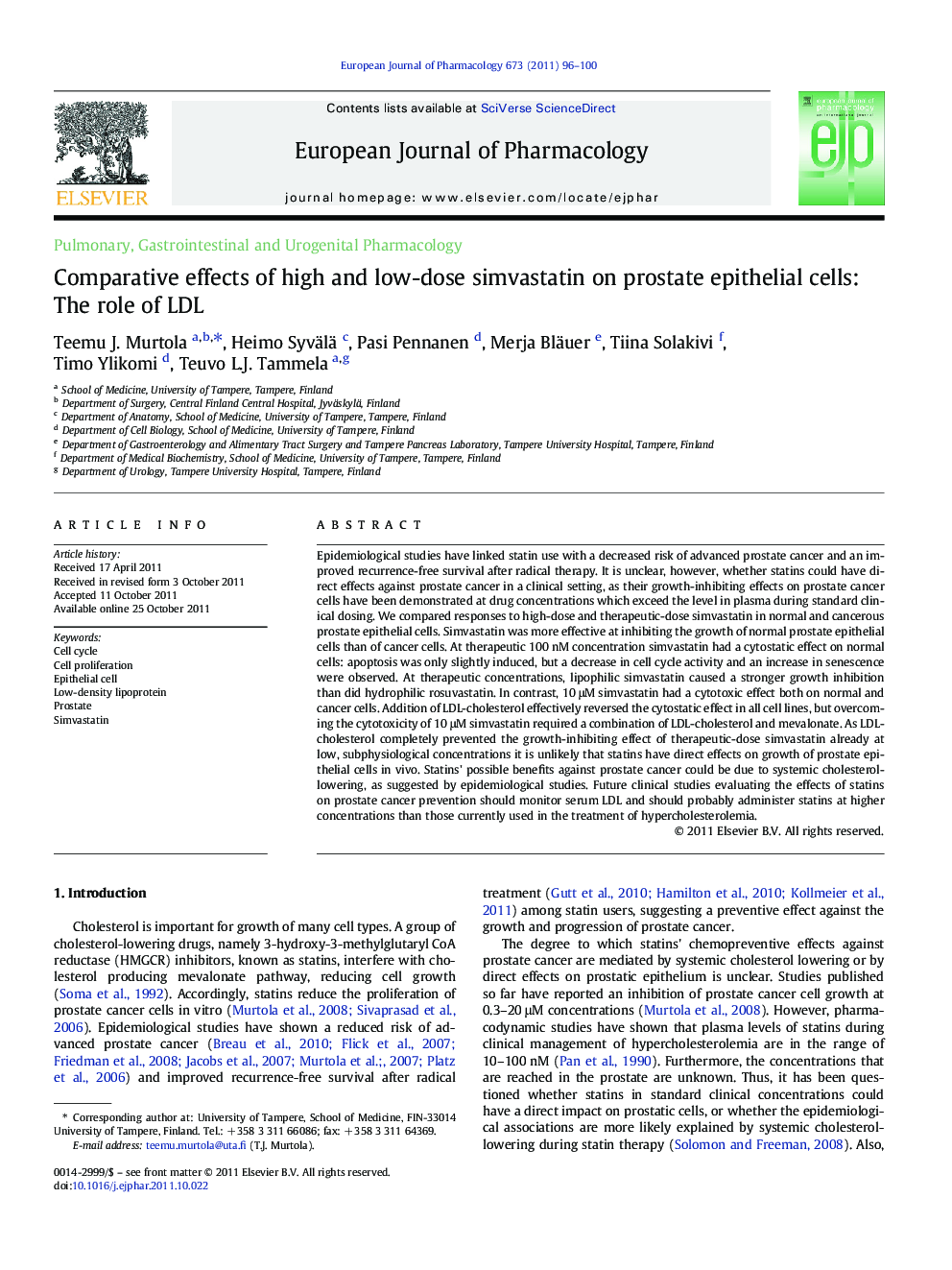| کد مقاله | کد نشریه | سال انتشار | مقاله انگلیسی | نسخه تمام متن |
|---|---|---|---|---|
| 2532481 | 1559009 | 2011 | 5 صفحه PDF | دانلود رایگان |

Epidemiological studies have linked statin use with a decreased risk of advanced prostate cancer and an improved recurrence-free survival after radical therapy. It is unclear, however, whether statins could have direct effects against prostate cancer in a clinical setting, as their growth-inhibiting effects on prostate cancer cells have been demonstrated at drug concentrations which exceed the level in plasma during standard clinical dosing. We compared responses to high-dose and therapeutic-dose simvastatin in normal and cancerous prostate epithelial cells. Simvastatin was more effective at inhibiting the growth of normal prostate epithelial cells than of cancer cells. At therapeutic 100 nM concentration simvastatin had a cytostatic effect on normal cells: apoptosis was only slightly induced, but a decrease in cell cycle activity and an increase in senescence were observed. At therapeutic concentrations, lipophilic simvastatin caused a stronger growth inhibition than did hydrophilic rosuvastatin. In contrast, 10 μM simvastatin had a cytotoxic effect both on normal and cancer cells. Addition of LDL-cholesterol effectively reversed the cytostatic effect in all cell lines, but overcoming the cytotoxicity of 10 μM simvastatin required a combination of LDL-cholesterol and mevalonate. As LDL-cholesterol completely prevented the growth-inhibiting effect of therapeutic-dose simvastatin already at low, subphysiological concentrations it is unlikely that statins have direct effects on growth of prostate epithelial cells in vivo. Statins' possible benefits against prostate cancer could be due to systemic cholesterol-lowering, as suggested by epidemiological studies. Future clinical studies evaluating the effects of statins on prostate cancer prevention should monitor serum LDL and should probably administer statins at higher concentrations than those currently used in the treatment of hypercholesterolemia.
Journal: European Journal of Pharmacology - Volume 673, Issues 1–3, 30 December 2011, Pages 96–100